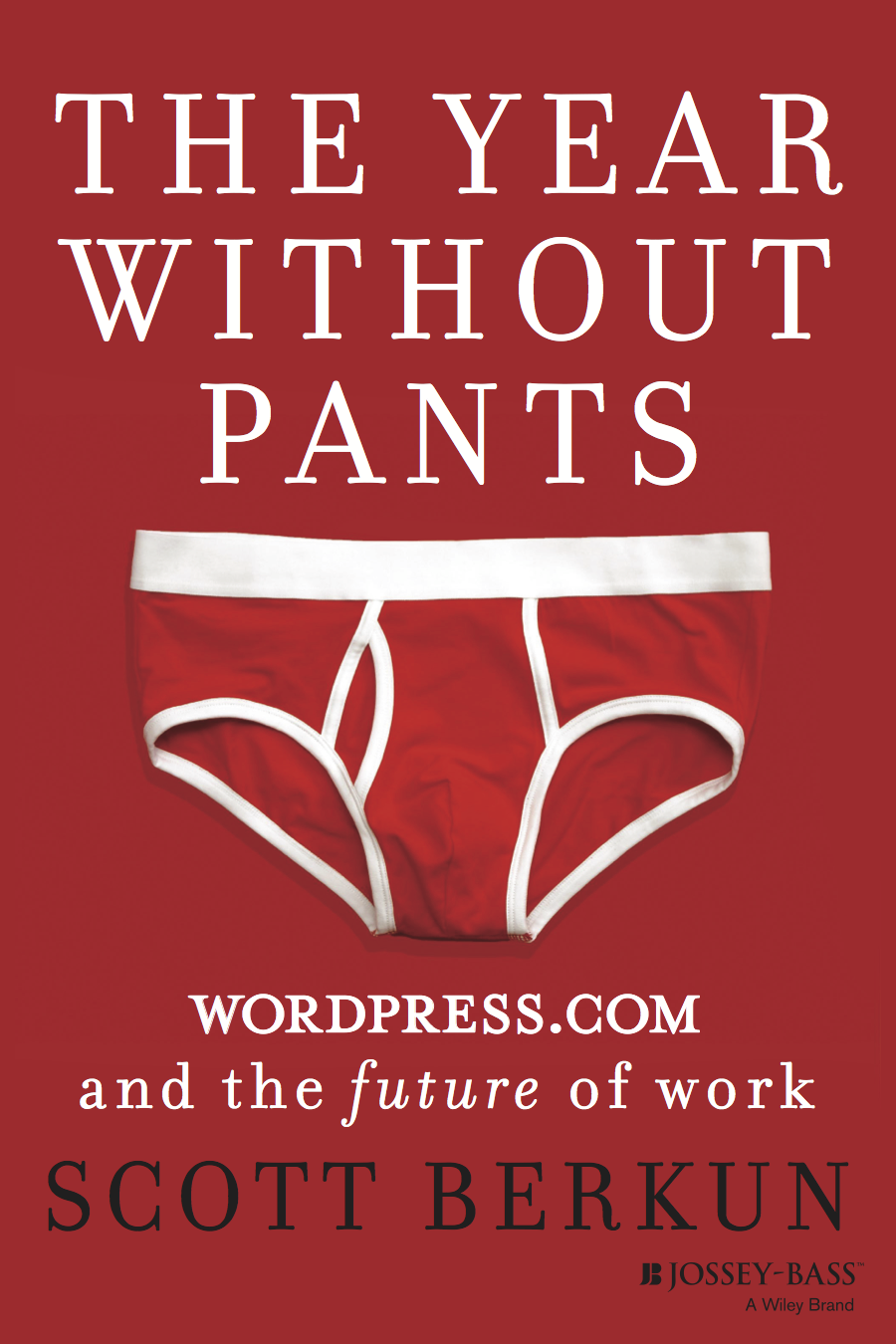Working remotely and The Year Without Pants
/October 18, 2013

Earlier this week I headed uptown to CUNY Journalism School, which was hosting a lunchtime talk by author Scott Berkun. I loved his book The Myths of Innovation, which I read last year while studying on CUNY's entrepreneurial journalism program, where I launched The Broad Experience. I'm currently reading his Confessions of a Public Speaker, which I'd recommend to anyone, who, like me, has fairly limited experience of speaking in front of a crowd but intends to do more and wants to get better at it. What I like about Berkun's writing is that it's a bit like good radio - it feels like he's talking to you in a friendly, upfront, informal way. His talk was about his latest book The Year Without Pants. I'll explain in a minute, but I should say here that this post doesn't pertain particularly to women, as most of my stuff does on this site, but to the workplace in general.
Berkun, a former Microsoft employee, makes a good living these days as a writer, consultant and speaker. But after consulting for quite a while he felt like a bit of a fake. How could he advise companies on how to do things when he hadn't worked in one for so long himself? So when a consulting gig at WordPress.com came up, he turned it permanent - for a year, anyway. That year of working for one of the world's most popular blogging platforms (20% of all sites are built on WordPress) is what he describes in The Year Without Pants. After all, when you work remotely, as everyone at WordPress does, who needs pants? (My UK friends will snicker here because over there, the land of my birth, pants constitute underwear, rather than trousers, as they do in North America. I presume Berkun did not spend a year without underwear, but you never know).
He was working in an environment where no one worked together. Everyone was scattered throughout the country and the world. Everyone at WordPress was genuinely excited to be there, he said, not part of the whopping 70% of Americans who are said to be un-engaged at work. If people love being there, who needs to be told what to do, right? No one, he said, used email (viewed as an archaic form of communication, at least for internal stuff), there were few rules, little structure, an open vacation policy, and people were treated like adults. Sounds like bliss, especially the part about being treated like a grown-up. That's the problem with so much work culture - that feeling you have of being corraled and talked down to like so many recalcitrant children.
But it wasn't perfect. He said something I've heard said by my Generation X friends about Generation Y workers - that they don't like conflict. He described WordPress as a conflict-averse culture, where ideas were all seemingly taken on board and no one dared criticize openly. Also, the fact that people are all working in different locations meant a lot of interactions were happening in chat-room-like settings. He pointed out that it takes a bit of forwardness to jump into a discussion that way. He also said at one point that given so many of us spend our days in offices, surrounded by colleagues, yet mostly communicate with them via computer, is this remote working type of situation really so different? Last month I met with an old friend and colleague in London who talked about how annoyed she gets by co-workers who sit two desks away, emailing her about something when they could have a face-to-face conversation. She thinks it's absurd, and often pops up by their desks, urging them to talk instead. But the reality is most of us are doing this now - writing rather than speaking, in part because it does make disagreement easier to avoid, or at least postpone, and we're all getting used to this rather more polite way of working. I still remember the slanging matches that used to occur in our small office at the London publishing house where I worked with the aforementioned friend (in the distant mid-'90s) - voices were raised, tempers were hot, doors were occasionally slammed. How, though, ultimately, do problems manifest themselves today, if not in email or face-to-face discussion? I suspect I'll have to read the book to find out what Berkun's final take is on WordPress and whether they way they do things might actually end up being the future of work.
He gave us this URL for those who'd like access to a free first chapter of the book: bitly.com/nopants.